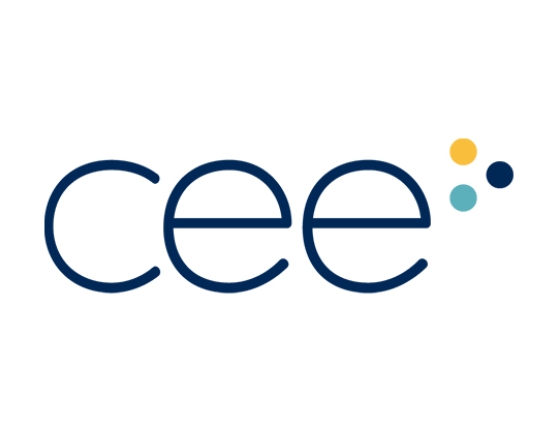Before this 2021 legislative session, Minnesota had not passed significant clean energy legislation in almost a decade. However, Minnesota just completed its most successful clean energy legislative session since 2007, thanks to bipartisan leadership from Governor Tim Walz and Lt. Governor Peggy Flanagan; state senators Dave Senjem (R-Rochester), Jason Rarick (R-Pine City), and Nick Frentz (D-Mankato); and state representatives Zack Stephenson (D-Coon Rapids), Jamie Long (D-Minneapolis), and Patty Acomb (D-Minnetonka), among many others.
In the only divided state legislature in the nation, these policymakers demonstrated bipartisan wisdom and cooperation to pass a flurry of significant initiatives that will benefit all Minnesotans now and in the future.
The bipartisan clean energy success started with the Energy Conservation and Optimization Act, passed in May at the end of the regular 2021 legislative session. And on June 22, during a special session called by Governor Tim Walz to finalize the state operating budget, Minnesota lawmakers passed the Commerce and Energy Omnibus Finance and Policy bill — carrying forward a slew of clean energy initiatives that fittingly reflect Minnesota's broad support for clean energy policies that serve a greater good. Together, these provisions make the 2021 Minnesota session the most productive session for climate and clean energy since passage of Governor Tim Pawlenty’s Next Generation Energy Act in 2007 — which also passed on an overwhelmingly bipartisan basis that year.
Innovative initiatives
In addition to May's passage of the ECO Act, the list of clean energy provisions enacted this session includes:
1. Minnesota Efficient Technology Accelerator. This legislation authorizes Minnesota's Department of Commerce to approve the establishment of an energy efficiency market transformation program, if that program meets specified criteria, and after significant stakeholder engagement. This proposal is based on a very successful program run by the Northwest Energy Efficiency Alliance (NEEA) for many years. A first-of-its-kind effort in the Midwest, the program will launch with the active participation of Minnesota's five largest investor-owned natural gas and electric utilities.
CEE developed this proposal with insights and suggestions from NEEA, Minnesota's Department of Commerce, Clean Energy Economy Minnesota, Minnesota Chamber of Commerce, Xcel Energy, CenterPoint Energy, Minnesota Power, Otter Tail Power, and others.
2. Natural Gas Innovation Act (NGIA). NGIA allows natural gas utilities to file plans to begin to decarbonize their natural gas service through additional efficiency, electrification, district energy, renewable natural gas, and green hydrogen. It also directs utilities to work to reduce their throughput of methane-based fuels and requires the state's Public Utilities Commission to consider regulatory and legislative options to decarbonize natural gas service.
CEE's Audrey Partridge and Rabi Vandergon authored a report showing that natural gas service is the fastest growing contributor to greenhouse gas emissions. Without legislative guidance such as those listed in NGIA, Minnesota would be unable to meet the state's total 2050 emissions reduction goal. We're grateful for the partnership of CenterPoint Energy, Fresh Energy, and the Laborers International Union of North America (LIUNA) of Minnesota and North Dakota for helping to pass this forward-thinking legislation.
3. State Buildings Energy Conservation Revolving Loan Program. This initiative establishes a new revolving loan program to finance energy conservation improvements in state buildings; loans are to be paid back through the energy cost savings created by the conservation improvements. This big idea was championed by Anne Hunt, Director of Enterprise Sustainability at the Minnesota Department of Administration.
4. Energy Transition Office. This initiative creates an office in Minnesota's Department of Employment and Economic Development to help ease the economic disruption experienced by host communities of retiring power plants, including the workers that make their living in those plants. The impetus behind this legislative initiative was a 2020 report by CEE's Audrey Partridge and Brady Steigauf titled "Minnesota's Power Plant Communities: An Uncertain Future."
Work on this initiative was spearheaded by Coalition of Utility Cities in close collaboration with CEE, the Minnesota Building Trades, Conservation Minnesota, and others over the past several years.
Minnesota's on a roll
In addition to these clean energy wins, a number of other important clean energy initiatives passed this year:
- authorization for an electrification project led by Xcel Energy and St. Paul District Energy
- appropriations for solar projects at Minnesota community colleges
- an appropriation to extend the Xcel Energy's Solar Rewards program
- appropriations for the Brightfields Initiative, a pilot program for solar projects on closed landfills
- an appropriation for the North Minneapolis Regional Clean Energy Apprentice Training Center
- an appropriation for a renewable ammonia/hydrogen demonstration project at the University of Minnesota, Morris
Much more work to do
While celebrating our success from this legislative session, it's important to note that, even given these notable wins, the progress made this year is not yet at the scope or scale urgently needed to meet the climate crisis.
Working with nonprofit allies, community partners, and government leaders, we will put our shoulders to the wheel next session on important legislative initiatives that didn't quite make it over the finish line this year. Continued collaboration with bipartisan leaders and advocates representing a variety of viewpoints is how we can, and must, build on our 2021 legislative success — finding common ground to reach higher ground.
As our friends at the 100% Campaign tweeted after passage of the Commerce and Energy omnibus bill, “It’s popular. It's possible. MN can lead again.” We agree!
